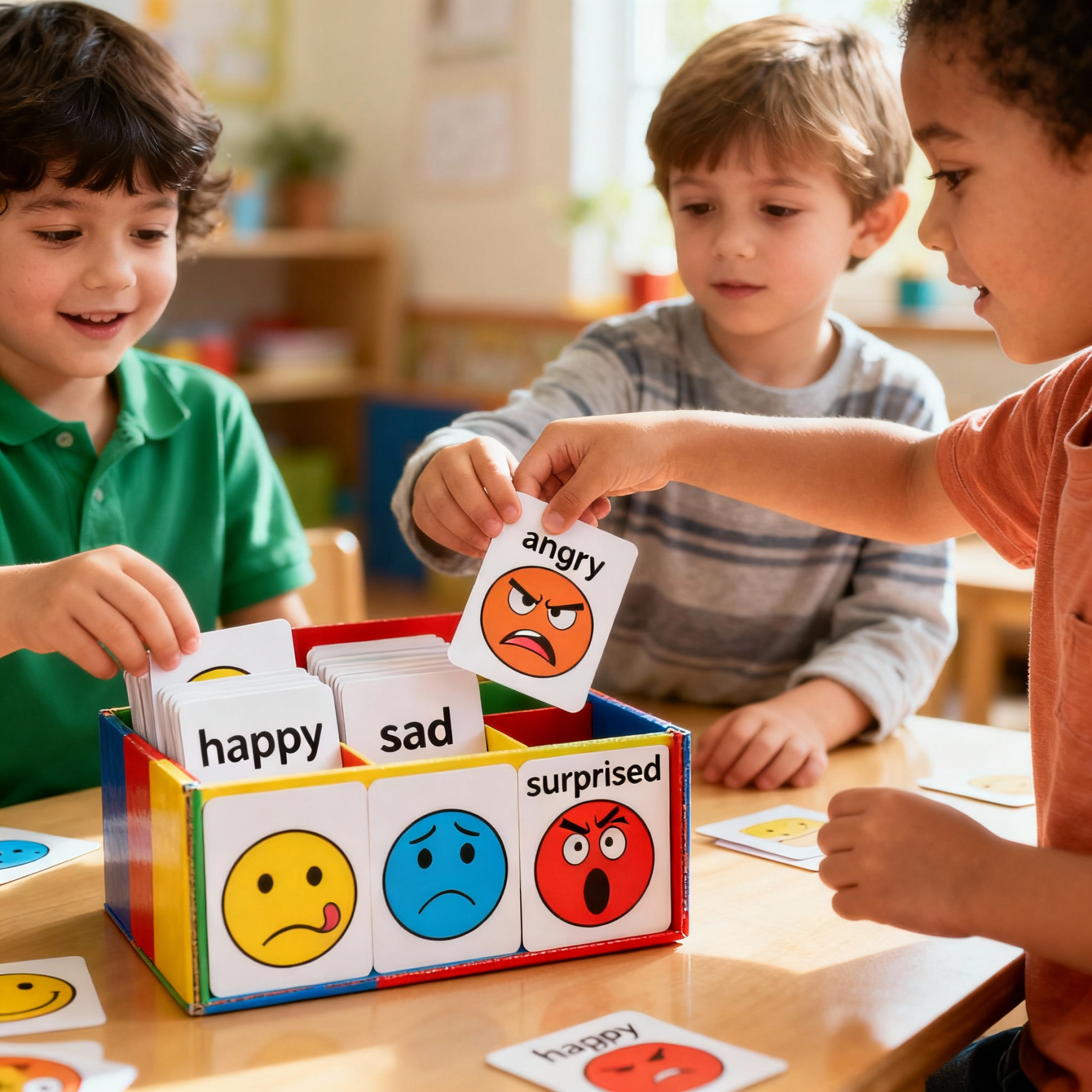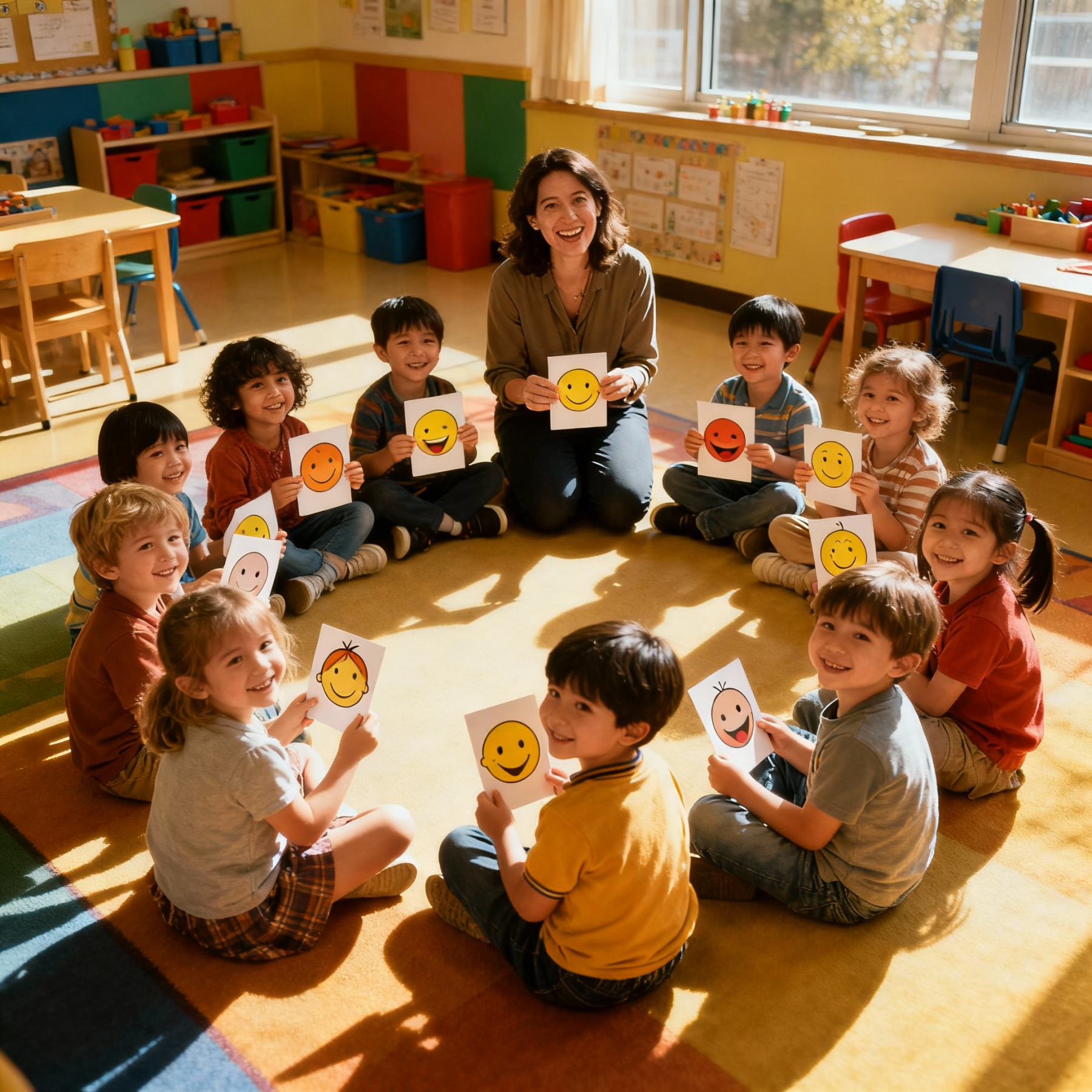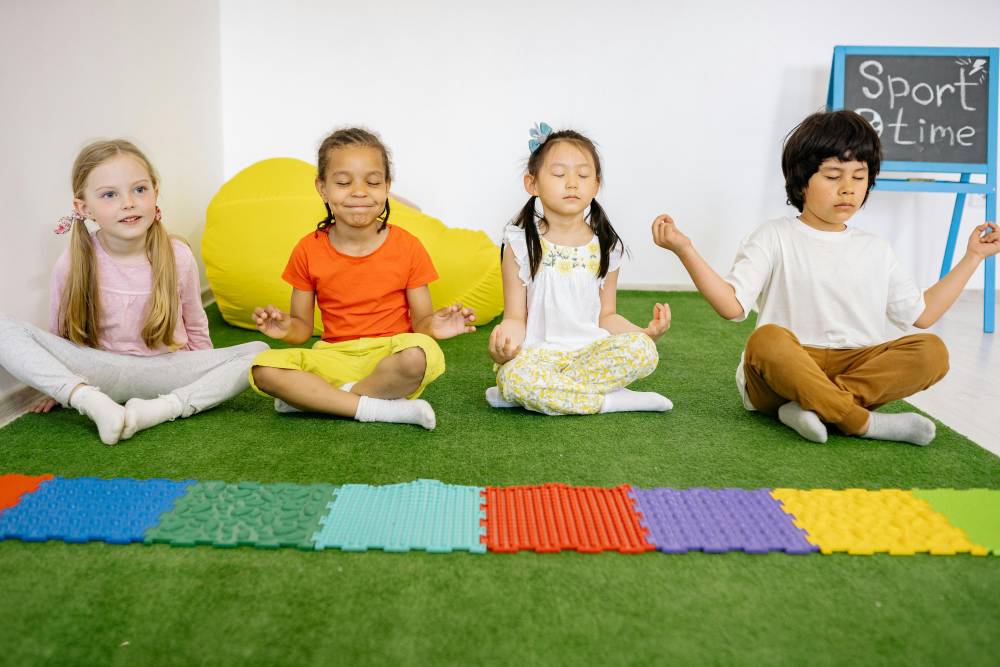Emotional intelligence is the ability to recognize, understand, and manage emotions, both one’s own and those of others. For children aged 0-6, developing this skill is essential for social, emotional, and academic growth. Preschools and childcare centers play a key role by providing a safe environment where children can explore their emotions and practice social skills through play and structured activities.
Why It’s Important
Children who develop emotional intelligence:
-
Learn to identify and express their feelings.
-
Develop empathy and cooperation skills.
-
Resolve conflicts in constructive ways.
-
Build self-confidence and healthy self-awareness.
These skills positively influence relationships with peers, educators, and family, and lay the foundation for future academic and life success.
Practical Activities to Develop Emotional Intelligence
1. Emotion Box
Description: Place cards in a box showing different emotions (happiness, sadness, anger, fear, surprise).

How to Use: Each day, a child picks a card and shares a short story about a time they felt that emotion or tries to mimic the facial expression.
2. Role-Playing Games
Description: The educator presents simple everyday scenarios (e.g., someone takes another child’s toy).
How to Use: Children act out the scenario, express the characters’ emotions, and learn positive ways to respond.
3. Kindness Box
Description: A box where children place notes or drawings about kind actions they did or observed.
Purpose: Encourages recognition and appreciation of positive behaviors and cooperation.
4. Storytelling and Emotion Talks
Description: Read a book or story, pausing at key moments to discuss how the characters feel.
Purpose: Helps children connect situations with emotions and practice talking about their own feelings.
5. Calm-Down and Breathing Rituals
Description: After active play or during a stressful moment, use deep breathing, calm music, or rhythmic games to help children relax.
Purpose: Teaches emotional regulation and self-control.
6. Mirror Play
Description: Children look in a mirror and mimic facial expressions showing different emotions.
Purpose: Helps children recognize emotions in themselves and others.
7. Group Discussions
Description: The educator encourages children to talk about something that made them happy or sad during the day.
Purpose: Develops communication skills, emotional awareness, and respectful listening.
The Role of Educators
Educators serve as emotional role models. By demonstrating empathy, calmness, and conflict-resolution skills, they teach children by example. Support, encouragement, and reflection on children’s emotions are key to developing emotional intelligence.

Developing emotional awareness and intelligence is an ongoing process requiring dedication and structured activities. Through play, stories, discussions, and practical exercises, educators can help children understand emotions, build positive relationships, and develop skills that will serve them throughout life. Emotionally skilled children are happier, more confident, and better prepared to face life’s challenges.








